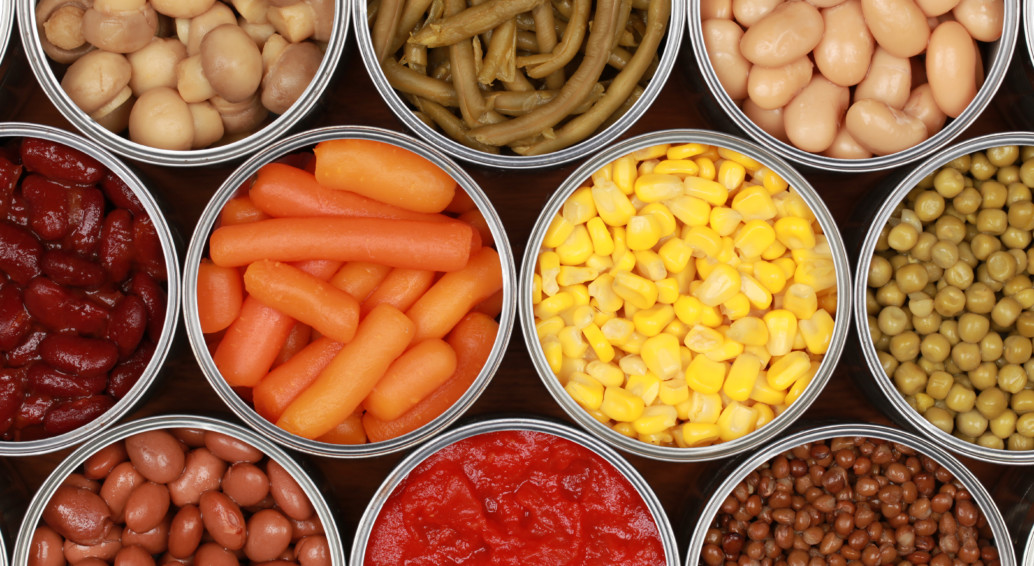Are Canned Foods Nutritious?

The Truth About Canned Foods
Canned foods can play an important role in an overall healthy diet. People who consume more canned foods tend to have a higher intake of fruits and vegetables and a higher intake of nutrients compared to people who consume fewer canned fruits and vegetables.
How Canned Foods are Made
Canned fruits and vegetables usually are canned within hours after picking. Some procedures may vary depending on the food item, but once the fruit or vegetable has been picked and transported to the canning facility, it goes through three major steps.
- Processing: Fruits and vegetables are washed and often peeled, cut, chopped or pitted before canning. Certain varieties of fruits and vegetables may be blanched beforehand. Dried beans are hydrated and blanched. Once the food is prepared, the cans are filled with either water or juice and seasoned accordingly.
- Sealing: After processing, the food is put into cans and the lid is sealed.
- Heating: Once the can is sealed, it is quickly heated to a precise temperature for a specified amount of time to kill harmful bacteria and prevent spoilage. After it is heated, it is quickly cooled.
Benefits of Canned Foods
Fruits and vegetables used for canning are picked at peak freshness, ensuring the best flavor and nutrient quality. Canned foods can be just as nutritious as fresh and frozen foods because canning preserves many nutrients. The amount of minerals, fat-soluble vitamins, protein, fat, and carbohydrate remain relatively unchanged by the process of canning. But, because the canning process requires high heat, canned goods may have less water-soluble vitamins such as vitamin C and B vitamins. However, the heating process that may harm some vitamins can actually increase the antioxidant content. For instance, canning increases the amount of lycopene in tomatoes.
Canned foods are a convenient and affordable way to incorporate more fruits and vegetables into your diet. The process of canning ensures a long shelf life of at least one to five years. This may be beneficial for individuals who often throw away fresh produce due to spoilage.
Making Wise Choices
While canned foods can be easy and convenient, there are factors to consider when choosing nutritious options. When purchasing canned fruit, pick varieties that are canned in water, 100 percent juice or in its own juices. Many varieties of fruit come packed in light or heavy syrup, which equates to added sugars. Choose canned vegetables without added salts, labeled “no salt added” or “low sodium.” Be mindful that cans marked “reduced sodium” are not necessarily sodium-free. Draining and rinsing canned beans and vegetables can reduce the sodium content as well.
Avoid cans with dents, bulges, cracks or leaks. This may be a sign of the bacteria that causes botulism. Damage to the can may allow air to enter, creating the ideal environment for Clostridium botulinum to grow. Botulism is more common in home-made canned goods that are improperly handled and is extremely rare in commercially packaged canned goods.
Source: eatright.org